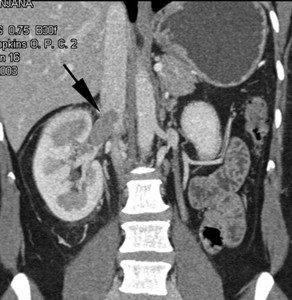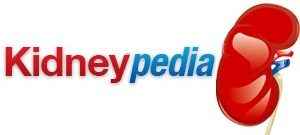
Hydronephrosis
Hydronephrosis simply meals “kidney swelling”. It occurs when the kidney gets too full of urine because the urine is unable to drain for some reason. Hydronephrosis can be caused by various reasons, usually something that restricts the flow of urine out of the kidney.
Hydroureter
Hydroureter is defined as swelling of the ureters. Like hydronephrosis, it occurs when the ureters gets too full of urine. Hydronephrosis and Hydroureter are usually caused by a blockage of some kind restricting the flow of urine to the bladder. Depending on where the restriction of flow is, or what the initial cause is, decides whether a case of hydronephrosis or hydroureter is produced.
Symptoms
It is possible to develop hydronephrosis or hydroureter without symptoms. This is because it can develop slowly over time. Sometimes, the symptoms are only present if you have an increased fluid load to the kidneys. If you drink a lot of water, coffee, or beer, causing you to produce a lot of urine, your condition may become symptomatic. If you do have symptoms, they usually are pain in the general area and/or
a change in your urination pattern. You may have decreased total volume of urination, more frequent urination, or feelings as if you have not emptied your bladder completely. It is also possible to have unexplained hypertension, or high blood pressure, due to hydronephrosis.
Diagnosis
You may be suspected of having hydronephrosis or hydroureter if you have unexplained renal failure and the above symptoms. If your physician suspects you have hydronephrosis, usually he or she will test for it by giving you an ultrasound, CT scan, MRI, or other imaging test to view your kidneys.
Cause
Hydronephrosis or Hydroureter are caused by another medical condition that blocks the urinary tract. Common causes of blockage are Benign Prostatic Hyperplasia (BPH), which is simply an enlarged prostate, Cancer, Cysts, or Kidney Stones also known as Renal Calculi.
BPH –
If you have BPH, your prostate gland becomes enlarged. This causes it to push on your ureters. The pressure that is caused from the growth of your prostate gland causes a restriction of flow in your ureters, thus causing hydronephrosis. Symptoms of BPH include frequent urination, getting up in the night to urinate, or feeling like you have not completely emptied your bladder after you urinate.
Cancer
A tumor, or a cancer growth, can also similarly cause hydronephrosis. A growth in the area of the kidneys, bladder, or ureters can restrict the flow of urine and block the urine from being emptied into the bladder. This then causes hydronephrosis or hydroureter.
Polycystic Kidney Disease (PKD)
Polycystic Kidney Disease is a genetic condition that commonly leads to chronic kidney disease. In this condition, cysts develop in the kidneys. If you have PKD, you also may develop cysts in other organs. The cysts in your kidneys cause blockage of the flow of urine out of your kidneys, causing your kidney to swell over time.
Infection
If hydronephrosis is left untreated, you can develop an infection of your kidney. If this happens it is an emergency, and your physician will likely give you a renal stent or nephrostomy tube to drain the fluid. He or she will also treat the infection with antibiotics. If left untreated, you could develop sepsis, which is a severe widespread infection causing a high fever, low blood pressure, and may lead to death.
Prognosis
When treated early, hydronephrosis can resolve completely depending on the condition that caused it. If your condition that blocks the flow of urine is resolved, such as a tumor removed, prostate gland removed, renal stent placed, or other issue, the prognosis for recovery from hydronephrosis is good. If however, you are polycystic kidney disease or have chronic hydronephrosis, you may slowly develop progressing
chronic kidney disease and eventually have to go on dialysis to survive. This is called End Stage Renal Disease (ESRD). Usually this happens by about the 4th decade of life in PKD. There are things you can do to slow the progression of PKD to ESRD such as taking medications, following a lower protein diet, and keeping yourself hydrated with fluids. Speak with your nephrologist about these things if you have been diagnosed with PKD.
If you are having any of the symptoms of hydronephrosis, contact your physician as soon as you can. If left untreated, hydronephrosis caused by an issue that could be easily resolved may cause permanent kidney damage, eventually necessitating dialysis.
Treatment
You may need a nephrostomy, which is simply an opening from your kidney to your abdominal wall, in order to drain the fluid. Your physician also will likely treat whatever condition is causing the hydronephrosis. There are drugs that can treat BPH in order to reduce the swelling of your prostate gland. You also may have to have surgery to remove all or part of the gland. If you have a tumor, you may undergo chemotherapy and radiation to shrink the tumor, and then surgery to remove it. If you have stones, you may have a procedure to break up the stones or surgery to remove them.
